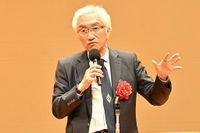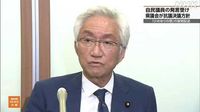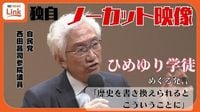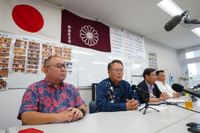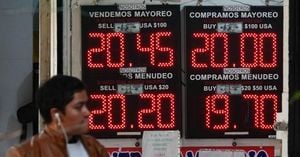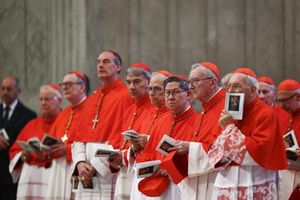On May 7, 2025, Masashi Nishida, a member of the Liberal Democratic Party (LDP) in Japan's Upper House, made headlines for his controversial remarks regarding the Himeyuri Tower in Itoman City, Okinawa Prefecture. This tower commemorates the students and teachers who were mobilized as the Himeyuri Student Corps during the Battle of Okinawa, a significant and tragic event towards the end of the Pacific War. Nishida stated that he would not retract his comments about the content of the tower's exhibits, which he labeled as a "rewriting of history."
Nishida's comments were made during a symposium on constitutional reform held in Naha City on May 3, where he expressed his concerns over the historical narratives presented at the Himeyuri Tower. He claimed that the descriptions imply that the Japanese army's entry into Okinawa led to the deaths of the Himeyuri students, followed by the American liberation of the island. "It's hideous, a rewriting of history," he asserted, emphasizing that such portrayals do not honor the sacrifices made by those who perished.
In response to his statements, criticism has surged from multiple fronts, including within his own party. The LDP's Okinawa Prefectural Federation convened on May 7 to address the backlash, deciding to formally protest Nishida's comments to the party headquarters. Kazuo Zaha, the chairman of the Federation, expressed disappointment, stating that remarks which provoke the sentiments of the local population should be avoided. He indicated that the Federation would support a resolution in the prefectural assembly demanding a retraction of Nishida's statements.
The controversy escalated when Nishida, while defending his position, stated, "I don’t know how it is now, but it’s hideous. Looking at the explanation, the Japanese army came in and the Himeyuri unit died, and then America came in and Okinawa was liberated. That’s how it’s written. If history is rewritten, this is what happens." His comments have sparked a debate about the accuracy and interpretation of historical events related to the Okinawa campaign.
In a counter to Nishida's assertions, Asaka Futenma, the director of the Himeyuri Peace Prayer Museum, pointed out that the content Nishida criticized was not present in the museum's descriptions. Futenma urged Nishida to engage with historical facts honestly, emphasizing that the museum's mission is to convey the lessons of the Battle of Okinawa to future generations.
Nishida continued to elaborate on his views, criticizing post-war education in Japan, which he claims has been heavily influenced by U.S. narratives. He described this educational approach as a form of brainwashing, stating, "In the case of Okinawa, they are doing a pretty crazy education including the interpretation of the ground war. We have to create a history that we can agree on." His comments reflect a broader concern among some Japanese politicians about the portrayal of Japan's wartime actions and the narratives surrounding the post-war period.
During the symposium, Nishida's remarks were framed within the context of a broader critique of Japan's historical education. He argued that the current educational framework does not adequately represent the complexities of the Okinawa campaign and the sacrifices made by its residents. "What is wrong is wrong," he asserted, indicating a desire for a more nuanced understanding of history that aligns with his perspective.
In the wake of the uproar, Nishida maintained his stance, stating, "Of course not [I won't retract my comments]. Because I am telling the truth." He expressed regret that his comments had caused distress among the local populace, clarifying that it was never his intention to hurt anyone. "I feel a sense of danger in the spread of clipped reports," he added, suggesting that the media portrayal of his statements may have led to misunderstandings.
As the situation unfolds, the LDP's Okinawa Prefectural Federation has committed to drafting a protest resolution aimed at addressing the concerns raised by Nishida's comments. This resolution will likely seek to clarify the party's stance on historical education and its representation of the events surrounding the Battle of Okinawa.
Critics of Nishida's remarks have pointed out the importance of accurately representing historical events, especially those as significant as the Battle of Okinawa, where many lives were lost. The Himeyuri Tower serves as a memorial for the victims, and any perceived distortion of their history can evoke strong emotions among the local community.
In conclusion, the ongoing debate surrounding Nishida's comments reflects a deeper struggle within Japan over how to reconcile its wartime past with contemporary narratives. As discussions continue, the impact of these remarks on local sentiment and historical education in Okinawa remains to be seen.
